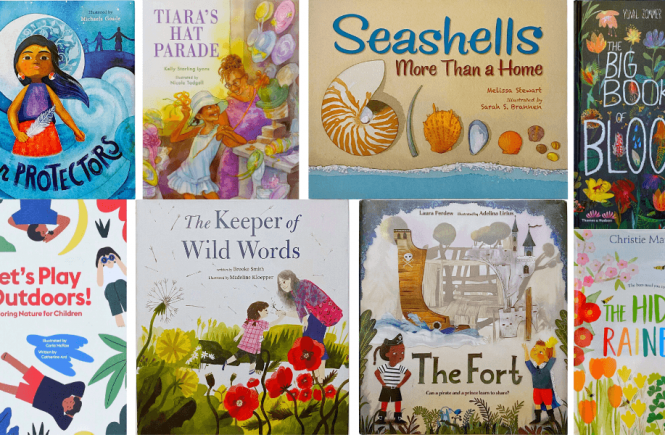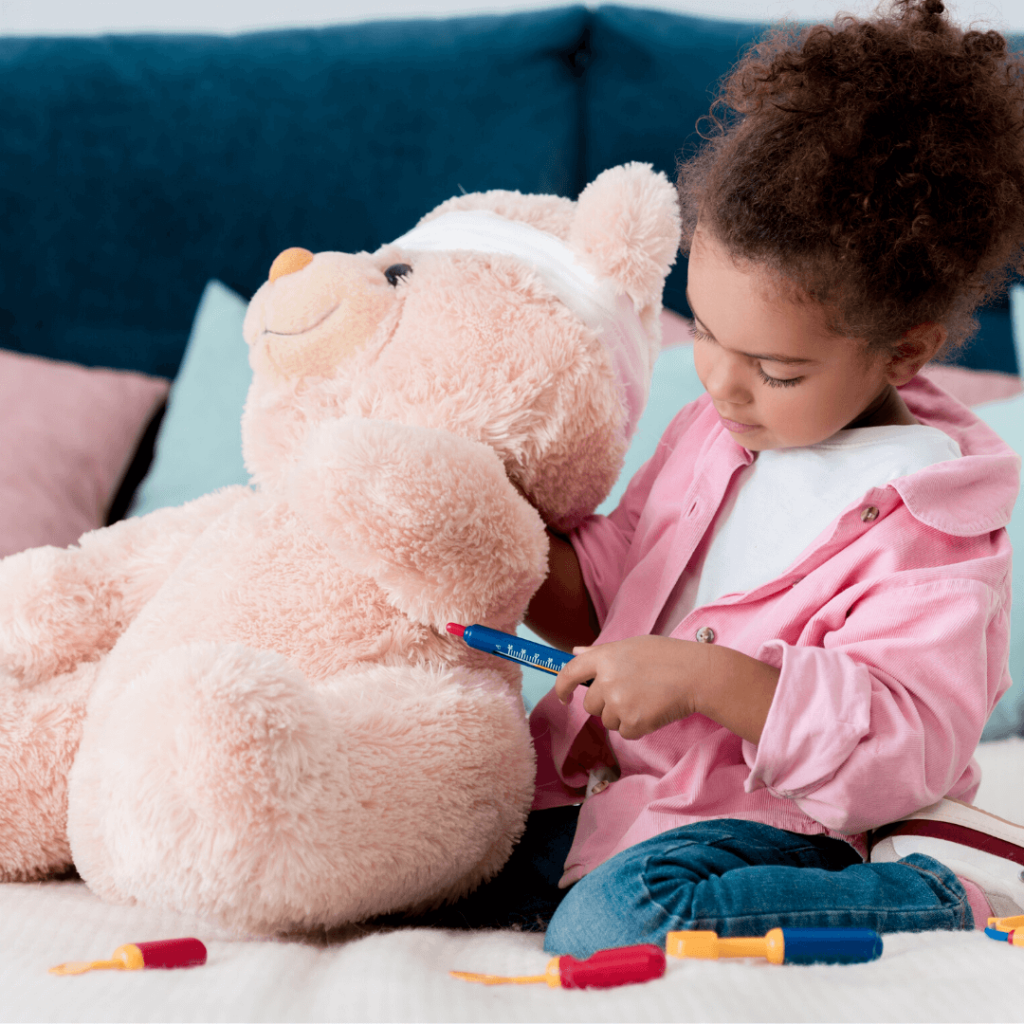
According to researchers, Pretend play or Imaginative play is the acting out of stories which involve multiple perspectives and the playful manipulation of ideas and emotions.
Pretend play begins naturally because children learn from what they see and hear, so every child pretend play at some point. However, it should be encouraged and enhanced.
ENCOURAGES IMAGINATION

Whenever you think of pretend play, the first thing that comes to mind is IMAGINATION because it’s the most important component of pretend play.
Imagination breathes creativity, so the more animated you are, the more fun you’ll have. Ask lots of questions to get their creative juices flowing.
Imagining you’re a firefighter or a doctor saving people, enhances cognitive skills that can be used later in life. Imagination gives your mind the freedom to explore new dimensions and fuels even greater performance on tasks that may seem difficult at first.
Imagination fosters ideas and pretend play help to experiment and bring them alive. At bedtime, encourage them to create stories about their day.
IMPROVES LANGUAGE SKILLS

The reason being, most children pretend to be adults, and they try to speak like us, so it’s important to speak articulately when you play pretend games.
REINFORCES COGNITIVE THINKING

Pretend play requires planning and the ability to transform into unique roles and children learn to solve problems that may arise during these activities.
Cognitive skills play a vital role in the mental development of children. It’s enhanced during pretend play and allows their brain to create scenarios and solutions that produce the best outcome.
For example, when the cookies are ready to be taken out of their toy oven, ask them what to do next. Though it’s pretend play, it’s important to be as realistic as possible because they are also learning. You’ll need mittens because the oven is hot and you don’t want to burn yourself.
It is necessary to reenact an episode or scene of chaos. For instance, pretending to cut yourself with a plastic knife and allowing them to treat your cut with their doctor kit. This teaches them that mistakes happen, but you can learn from them. Remaining calm through the process is also important, then talk about what happened and the need to be cautious in the kitchen.
These scenes promote Critical thinking and allow them to make quick decisions, preparing them for life’s challenges. Pretend play allows them to experiment and figure out new strategies and theories, making it great for their cognitive development.
As parents, it’s ok to be animated with your pretend skills. The more animated you are, the more they remember.
ENHANCES SOCIAL DEVELOPMENT

Children will interact with other children very early in their lives. Whether it’s at school, the park, or even with siblings or cousins.
Pretending to be a firefighter, a teacher or baker shows diversity and lets them know that everyone is unique and performs specific tasks.
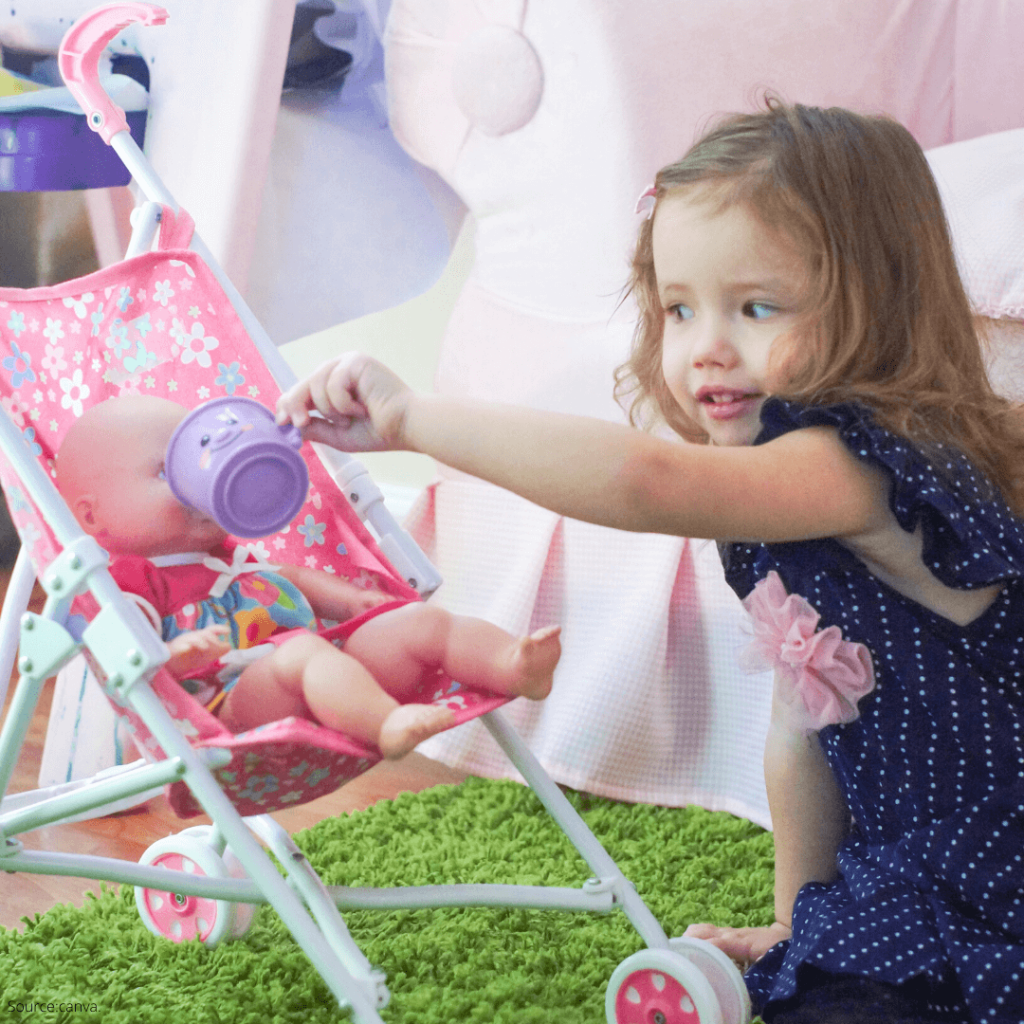
BOOST SELF CONFIDENCE

One of the best benefits of pretend play is it allows children to be ANYTHING they want to be. Whether it’s a character from their favorite show or from a book, they become more aware of their surroundings and learn through play.
Slaying fire-breathing dragons and rescuing cats from trees makes them feel brave and confident. Once in a while, reverse the roles from good guy to bad guy, so they can experience a different emotion. This allows them to understand how another person feels in a specific role. It also teaches them they may not always win, but it’s all good fun.
These things create a positive mindset and increase self-esteem and self-awareness, making it easier for them to try unfamiliar things when they get older because they aren’t afraid.
Performing simple tasks on their own and being praised for completing it, boosts confidence and allows them to be more open to doing it again. They seek your validation, so reassuring them with praises and positive affirmations are always necessary.
Children who are confident perform better at tasks and are more sociable and friendly.
INCREASES FINE AND GROSS MOTOR SKILLS
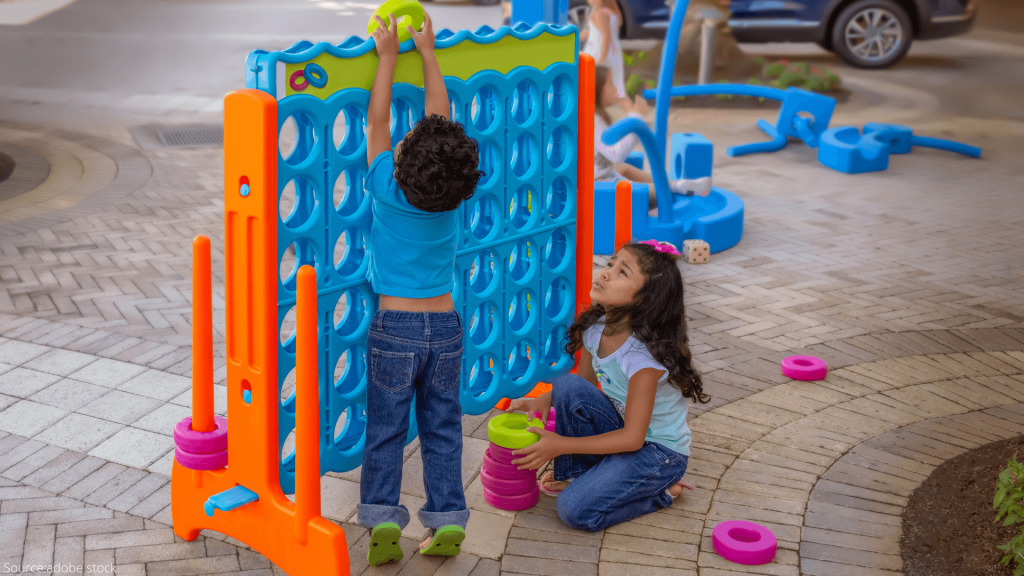
A great way to keep children active is to have them play. Their Fine and Gross motor skills improve during any play, including pretend play.
For example, when children pretend to be pirates, they navigate the sea to find treasures. Just as astronauts in space, they explore and discover other planets while jumping and running.
To help improve their focus and agility, transform their rooms into an obstacle course and have them figure out ways to complete it without falling into deep waters below. You can even pretend to be a dinosaur chasing them around or have siblings or friends do it.
These fun activities increase Gross motor skills and incorporate exercise during the day.
Encourage them to build castles, Lego mountains, play dress-up in their vanity or even cut veggies or make pizza for dinner in their toy kitchen. These help to improve fine motor skills and hand to eye coordination.
TEACHES MANNERS AND ETIQUETTE
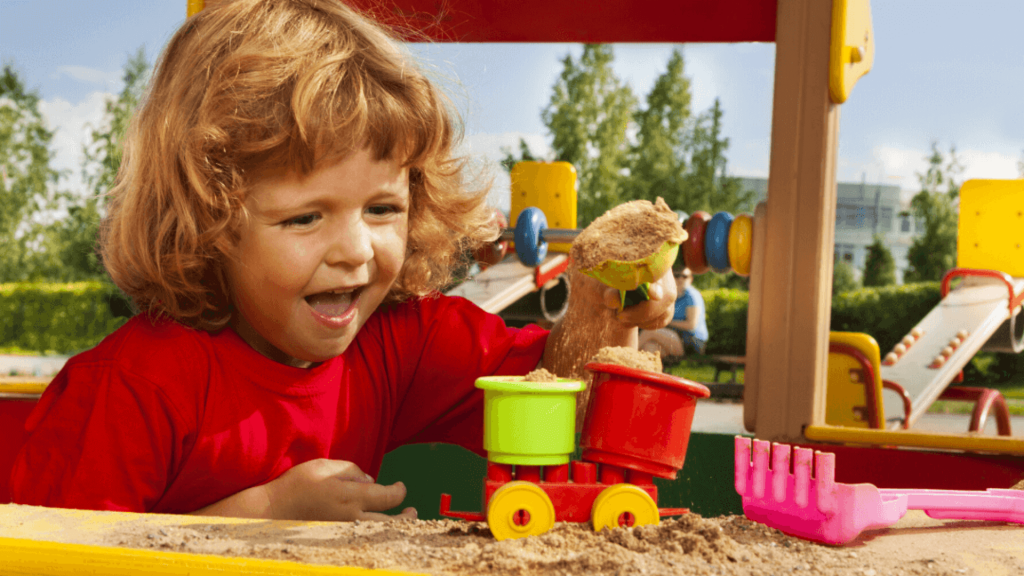
Have you ever noticed that play shed at the park? You know the ones where you can buy that imaginary ice-cream from a child? Well, they help to serve a specific purpose.
It plays such a vital role because it encourages sharing and can teach children how to be polite. That tiny play area allows children to interact with other children and it’s the perfect opportunity to learn manners. Encourage them to use expressions such as, “May I have,” “Please,” and “Thank you.”
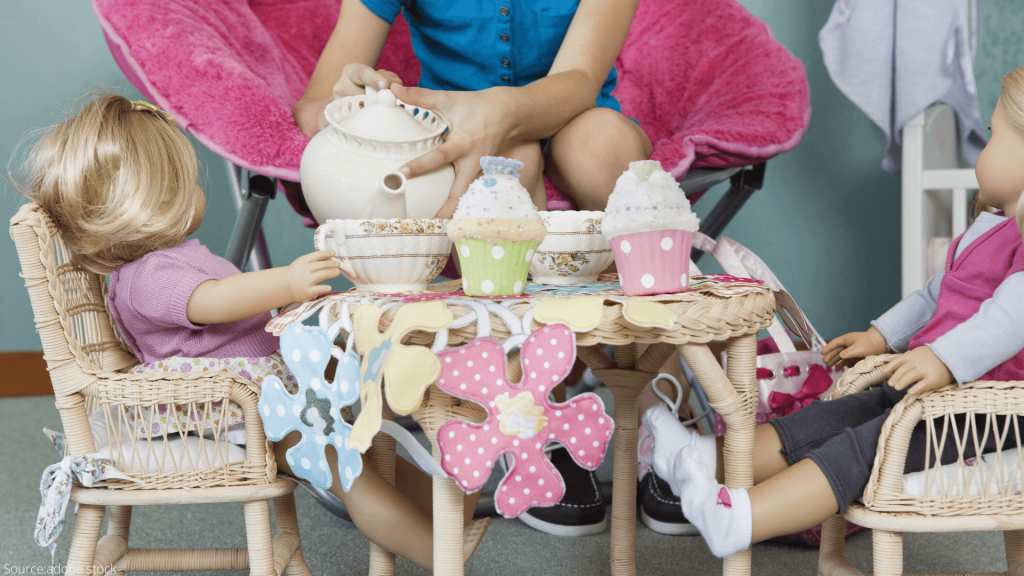
Pretending to sell items gives them a sense of responsibility and can teach children about service and showing respect to people who serve them. Whether it’s a waiter or grocer, practicing these simple pretend activities can instill values that stay with children forever.
Having an afternoon tea party with their grandma in the garden can be another way to practice proper table etiquette.

There’s no denying that pretend play is fun and beneficial to children, but it also benefits us. Pretend play encourages independent play and gives you the time needed to do other things. When a child is in his own imaginary world, they help develop a sense of independence by keeping themselves entertained.
Pretend play helps to develop organizational skills and children are more helpful with chores. It allows children to flourish in unfamiliar environments because they’re accustomed to it. It prepares them for real-life scenarios.
Pretend plays can help make life so much easier. Meeting strangers and first day of school jitters become easier because they’ve learned to understand the world around them.
Please note that at a certain age, it may be difficult to distinguish between pretend and reality, so children should know when it’s an appropriate time for pretend play. We don’t want them pretending to eat dinner without actually eating it.


